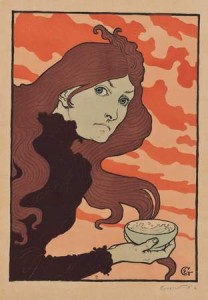[contextly_auto_sidebar id=”xGDWAexoDrHPFCevaXgcNYzALx2EWaaG”]
THIS week, it seems, has brought us closer to the end of net neutrality, with the FCC getting closer to approving a pay-to-play “fast lane.” The fear among purveyors and enthusiasts of indie culture is that there will be a tiered Internet, one for wealthy corporations and a slow one for the rest. Enormous power would go to broadband companies.
It’s still unclear where this is all going, but one important group — Future of Music Coalition — has released a letter to the FCC chair urging a return to the open Internet and arguing that “the FCC is now proposing rules that would kill — rather than protect — Net Neutrality and allow rampant discrimination online.” The letter continues:
Under these rules, telecom giants like AT&T, Comcast and Verizon would be able to pick winners and losers online and discriminate against online content and applications.
The open Internet’s impact on the creative community cannot be overstated. The Internet has enabled artists to connect directly with each other and with audiences. It has eliminated the barriers of geography and taken collaborations to new levels. And it has allowed people— not corporations — to seek out the film, music and art that moves them.
The letter is signed by Fred Armisen, Kronos Quartet, Rebecca Gates, Jello Biafram Neko Case and many others.
 This is an important issue and one that I’ll keep tracking on Culture Crash.
This is an important issue and one that I’ll keep tracking on Culture Crash.
ALSO: For centuries, artists of all kinds have moved to cities to do their work. It’s never, of course, been easy. Recently, as fortunes are made in technology and finance, it gets even harder for musicians, writers, and artisans to keep up. A brief bit on NPR gets into this struggle. Here’s how it begins:
There are very few professions where poverty is romanticized, but if you’re a Franciscan friar or an artist, being poor is seen as somehow ennobling. Josh Shaw, who ran a recent of La Boheme in Los Angeles, says the opera’s famous story of starving artists hits a little close to home.
“There’s been times recently … where I have practically nothing in my bank account,” Shaw says. Almost everyone in his company works multiple jobs — waiting tables, teaching music, writing for little publications. Their lives don’t seem too different from the artsy bohemians in Puccini’s opera.
Another subject not going away anytime soon.
FINALLY: The other day I drifted into LA’s Hammer Museum, which has long been one of my favorite museums, and which now has free admission. Among the highlights of my visit was a show open only through Sunday (May 18), Tea and Morphine: Women in Paris, 1880 to 1914. The show collects paintings, drawings, illustrations and so on of sinful women — including the above “acid thrower” rendered by Eugene Grasset — and puts the work in a context that evokes Baudelaire and Flaubert. Very fine: See this if you can.

This kind of stuff is only another example of plutocrats running the government entirely for their own benefit. The United States government gives them an old fashioned monopoly and then allows them to dictate how much it will cost and what service they will provide. Other countries, run by sane people, demand certain performance and price levels. America is number 23(!) of industrialized countries in internet speed and this is the country that invented the internet! The internet costs way more than your average European country but docile Americans shrugs and say “This is free enterprise” while wondering about that poking sensation down below.